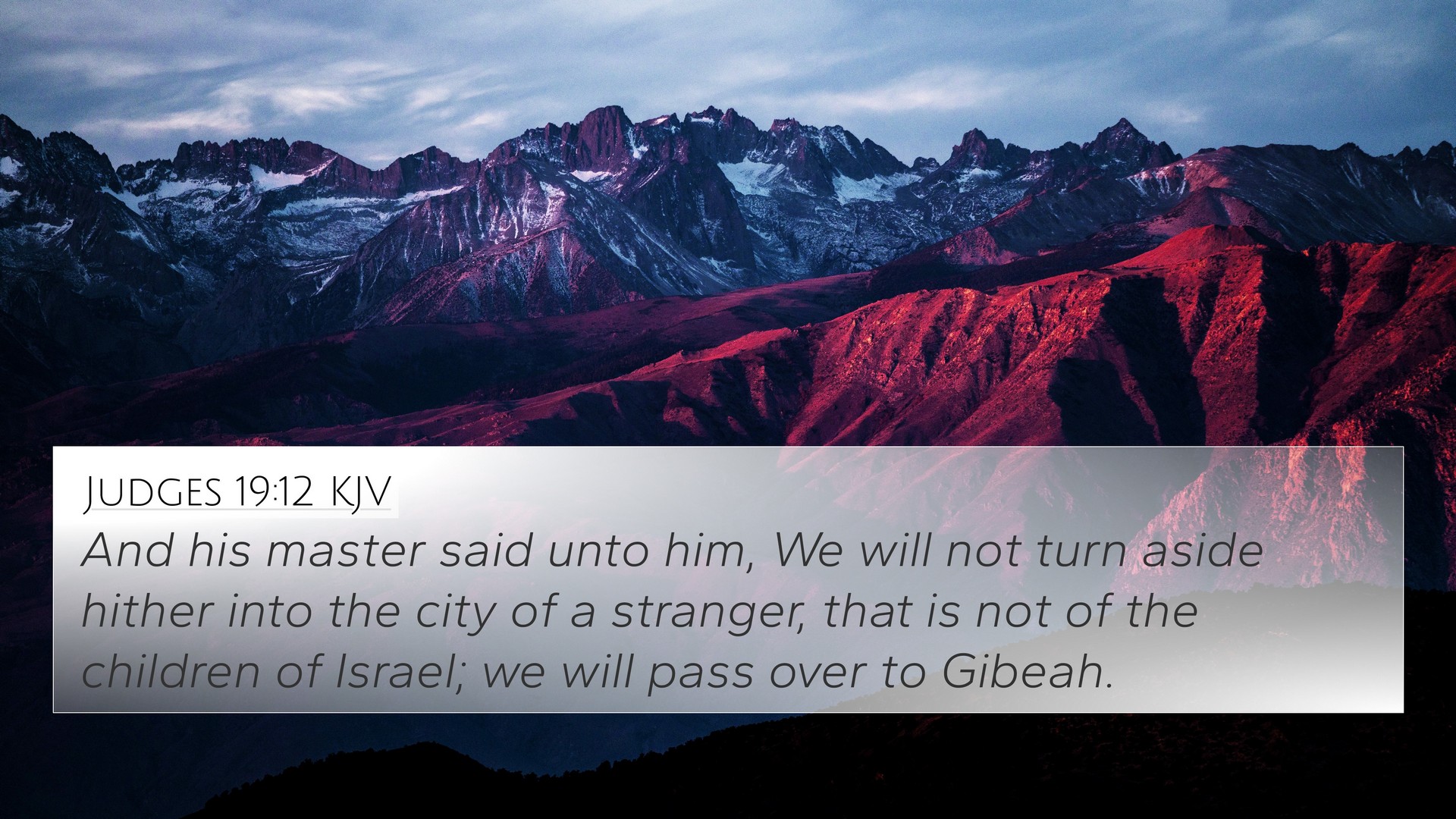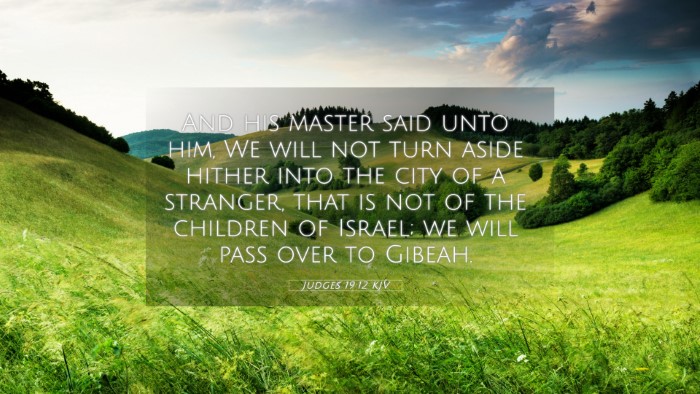Understanding Judges 19:12
Judges 19:12 presents a narrative that reveals deep cultural and moral issues within Israel during a turbulent time in its history. The verse serves as a backdrop to a story filled with hospitality, deception, and the consequences of the Israelites' straying from God's commands.
Verse Context
This verse is set during a time when Israel had no king, highlighting a period of moral decay and lawlessness. The events leading to this chapter illustrate the degradation of social norms, especially concerning the treatment of strangers and the sacredness of hospitality.
Verse Interpretation
In Judges 19:12, the Levite, who is traveling with his concubine, seeks refuge in a city that is part of Israel. His inquiry about whether to stay in the city reflects the underlying tensions regarding hospitality laws and the expectations for the treatment of travelers.
Insights from Public Domain Commentaries
- Matthew Henry: He emphasizes the gravity of the Levite's situation, suggesting that a failure to provide hospitality in Israel—a land chosen by God—illustrates the moral decline of the people. Henry notes that this reflects a broader theme of neglecting the righteous principles God established.
- Albert Barnes: Barnes points out the significance of the Levite’s journey and his choice of cities. His commentary suggests that the interaction not only highlights the expectations of hospitality but also foreshadows the trials and moral failures that come from a society that has turned away from God's ordinances.
- Adam Clarke: Clarke provides a critical view of the cultural factors at play during this period. He explains how the Levite's plea for shelter underscores the risks inherent in travel during this tumultuous time, reflecting a society that has largely abandoned the divine call to love and protect the vulnerable.
Bible Cross-References
Judges 19:12 is intricately connected to various other biblical texts. The following references help in understanding the themes of hospitality, morality, and community conduct:
- Genesis 19:1-3: The hospitality of Lot and the dangers posed by inhospitable cultures.
- Leviticus 19:34: God's command to love the stranger, highlighting the ethical expectations of Israelites.
- Matthew 25:35: The New Testament echo of welcoming the stranger as serving Christ.
- Hebrews 13:2: The reminder of the importance of hospitality and how it can engage heavenly interactions.
- Romans 12:13: Paul’s exhortation to practice hospitality as a demonstration of Christian love.
- 1 Peter 4:9: Encouragement to show hospitality to one another without grumbling.
- James 2:2-4: Warning against showing favoritism, underscoring the call for equitable treatment.
- Matthew 10:14: Christ’s teaching on the reception of His messengers as an extension of hospitality.
- Proverbs 14:31: How mistreatment of the poor and stranger is equated with disdain for God.
- Luke 10:33-37: The Good Samaritan parable emphasizing the active help to those in need.
Thematic Connections
In exploring the thematic connections within the scripture, Judges 19:12 invites critical engagement with the principles that define community responsibility, particularly regarding:
- Hospitality in both Old and New Testaments.
- Justice and righteousness within societal frameworks.
- The grave consequences of collective moral failure when turning away from God's commandments.
Conclusion
Judges 19:12 serves as a profound entry point into discussions about biblical ethics, the necessity of hospitality, and the commentary on societal behaviors in the face of divine law. As you study this verse, consider utilizing tools for Bible cross-referencing to explore the breadth of connected teachings that enhance a comprehensive understanding of scripture.


